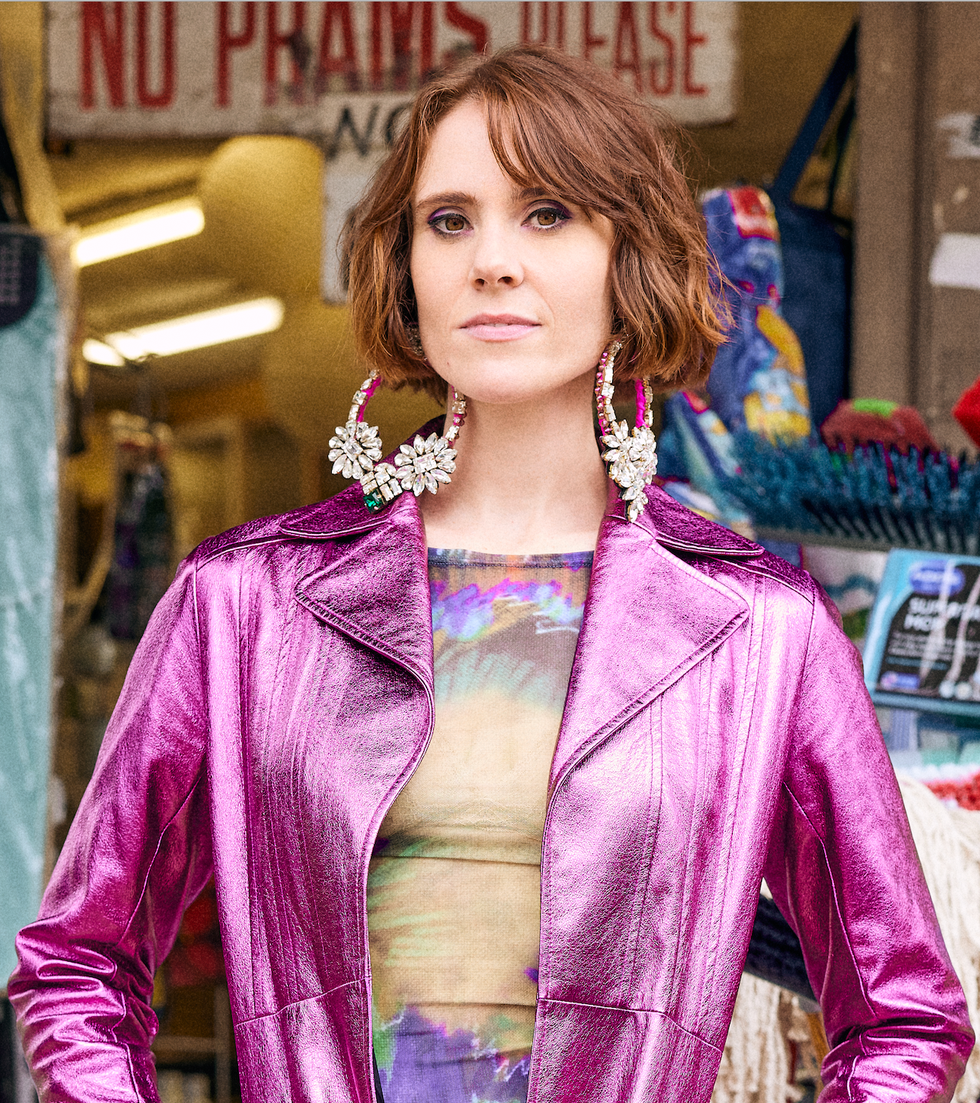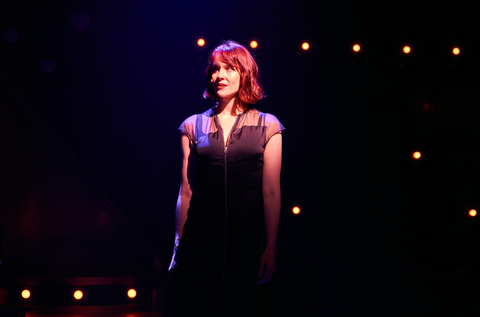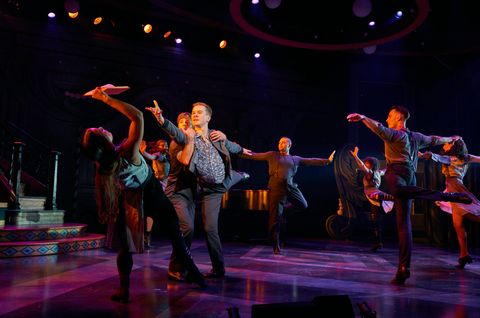What Can’t Kate Nash Do?
Kate Nash has a knack for churning out ear worms about life’s simplest moments. But the British pop star’s twisty career these last 15 years has been anything but uncomplicated. In 2007, her debut album Made of Bricks topped the charts and hit song “Foundations” became the de facto choice for MySpace profile songs. When Nash’s second album failed to reach the same commercial success three years later, she was unceremoniously dropped by her label. Suddenly, Nash found herself alone, bankrupt, and abandoned by a community that had once put her on a pedestal.
But Nash is not one to ask, why me? “You can get back up when they’ve kicked you down,” she tells me now. “Just be good to people, and you’ll always have friends that help you when shit gets hard.” She agreed to participate in a documentary about her experience, landed gigs at Coachella and Lollapalooza, and eventually secured a role in Netflix’s hit female wrestling dramedy Glow. As she continued to forge her own future—one outside the confines of what she calls a “scary and alienating” music industry—Nash was secretly writing about rejection, resilience, and, ultimately, learning to love yourself again.
Fifteen years later, those deeply personal songs make up the score for Only Gold, an off-Broadway fairytale musical about forbidden romance. The music and lyrics are all by Nash, who also stars in the show; story and book are by Andy Blankenbuehler (In the Heights, Hamilton, Bandstand) and Ted Malawer (Everything Beautiful Happens at Night). “I am so honored to have such talented people working with my music,” Nash says. “I love collaboration.”
More From ELLE

Below, the singer-songwriter opens up about transitioning from pop to musicals, navigating new creative fields, and why she believes it’s always “okay to make mistakes.”
Only Gold is fun and whimsical, the ultimate antidote for the last few years. When did you first come up with the idea?
Andy [Blankenbuehler] approached me 12 years ago and told me he wanted to make a musical with my music. I had no idea what that really meant, but we talked about his idea over dinner. We connected immediately. Over the years, the story has changed so much but its core message is the same. I started meeting him every time I was in New York City for shows, and eventually started making trips for the musical specifically. I’ve learned so much as a songwriter. I really enjoy writing for characters and for a story, because it just keeps everything fresh. There’s more to draw from. In terms of original vision, I had no idea what to expect, but the prologue always felt like what our show was really about: a story about heart. We have tried to put that at the forefront of the show. We always said we never wanted the relationships to feel tied up neatly in a bow, but to feel complicated and messy, much like real life.
How does working on a musical differ from writing an album?
The best part has been meeting so many fantastic people and artists. I’m constantly inspired and laughing at work. I think working on a musical is the ultimate creative collaboration. So many elements have to fall into place to make magic happen. I never worked with dancers until Only Gold, and I am now certain that musicians and dancers should always be friends. The way dancers give life to music really touches me. It’s so inspiring. I’m blown away every day by everyone in our show.
Has it been a steep learning curve?
The hardest part was managing outside stress and pressure, finding stillness and breath, and focusing on what is important. Coming back to the essence of the story is the most important thing. It was extremely hard being away from my dogs for so long and adjusting to life in New York. Working six days a week with rehearsals during tech and previews was probably the most challenging time. You learn how much you can push your body and also when you can’t.
What’s been your biggest takeaway since entering this new creative field?
I learned that it’s still possible to fall into old habits even when you are 35. Self-confidence takes constant management and new experiences will always shake that up. I learned that I can take on new challenges and that I have my own process. It’s important I trust that and trust myself.
What other musicals inspire you?
Musical theatre was never really my world, but I’ve made an effort to see musicals over the years to understand the world I’m working in. I think the fact I am an outsider is a strength in our show. Cabaret is my favorite musical, it’s such an iconic show, I saw Emma Stone and Alan Cumming in a version a few years ago and loved it.
Only Gold features a mix of new music and hits from past records. How did you decide which songs to include?
It’s exciting to see your music given new life. For example, some people will hear songs like “Nicest Thing” or “Mouthwash” for the first time when they see Only Gold, instead of knowing it’s true origin. I think it’s so cool when stuff like that happens. It gives the music a whole different life. I love what has been done with “Mouthwash” in the show. It’s very surreal to watch. Andy chose songs he wanted to choreograph to. I would send him music and he had playlists of old songs. Sometimes we needed to tell a more literal story or I needed to write a new song for a specific moment, like “Split in Half,” “Paris Allure,” and “Bones & Dust.” Those songs don’t exist anywhere else except in the show, and that’s pretty exciting.
You’ve talked about feeling like you never fit in with the music industry. Has that shaped you as an artist?
I got dropped by my record label, and I think the media was kind of classist when I first started releasing music. I don’t have famous people in my family and I don’t come from a rich background. My mum is a nurse and my family is Irish and from Dartford [in England]. My grandad was a book keeper and a boxer. When I moved back home, my parents couldn’t help me the way they wanted to or the way some of my rich friends can get help when they’re going through something. That really opened my eyes to how different the music industry is for people from working class backgrounds. Money is thrown around in a ridiculous way and that’s scary and alienating when you don’t come from money.
What advice would you give to someone navigating the music industry?
Oh God, I think the environment changes constantly, so I never know what advice to give that would be relevant. Every time I release an album, I’m dealing with a different world. Don’t listen to people that say you need to “find your sound” and chuck you in a room with a ton of different producers and top liners that write for every other artist. That’s dull. Don’t lose what makes you unique. You have a sound, that’s why someone is trying to profit from you. Remember that the people from the industry are business relationships. Keep strict boundaries in place.
I would encourage people to find their creative family, because that will be with you for life, rather than just when you’re profitable. You won’t always be hot shit. Only one person that was working with me during my first record is still in my life, and of course it’s a musician. That says everything. I would also say limit your social media use. It’s making the world a fucked up place and making people dumb and more egotistical. Art is not about sitting pretty. Find creative allies, creative partners, collaborators. I don’t think art is a solo journey. Take risks, say no when it feels wrong, don’t sign a management contract, get a good lawyer, and play a ton of shows. Throw paint at the wall and trust your gut. Your head isn’t thinking straight. It’s okay to make mistakes. You can get back up when they’ve kicked you down. Just be good to people and you’ll always have friends that help you when shit gets hard.
This interview has been edited and condensed for clarity.
Rose is a Senior Editor at ELLE overseeing features and projects about women’s issues. She is an accomplished and compassionate storyteller and editor who excels in obtaining exclusive interviews and unearthing compelling features.



